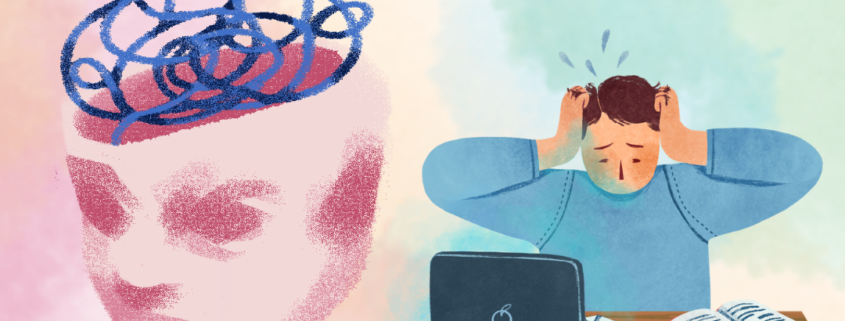Anxiety vs. Stress: How to Tell the Difference and Why It Matters
Author: Toriann Clarke
We often use the words anxiety and stress interchangeably. “I’m so stressed about this meeting,” might just as easily be “I’m anxious about this meeting.” While they can feel similar in the moment racing thoughts, tension in your chest, difficulty concentrating, they’re not actually the same.
Understanding the difference between anxiety and stress isn’t just about semantics. It’s about learning how to respond to what’s happening in your mind and body in a way that actually helps. Let’s break it down.
Stress: A Response to an External Pressure
Stress is typically tied to a specific, identifiable cause. It’s your body’s reaction to a demand or challenge, anything from a looming deadline to a family argument to a flat tire on the way to work.
Key characteristics of stress:
- Triggered by an external situation
- Often temporary and goes away when the situation resolves
- Can be motivating or helpful in small doses (think: “good stress” or eustress)
- Physical symptoms might include headaches, tense muscles, fatigue, or trouble sleeping
Stress is your body’s way of getting your attention. It’s saying, Something needs to be dealt with. Once that thing is handled, your nervous system tends to settle back down.
Anxiety: When Worry Sticks Around
Anxiety, on the other hand, isn’t always connected to a clear or immediate threat. It’s more internal, and often persistent. While stress is your response to what’s happening around you, anxiety is your response to what might happen.
Key characteristics of anxiety:
- Can exist even when there’s no obvious cause
- Often involves overthinking, “what-ifs,” or catastrophic thinking
- Tends to stick around, even after a stressor has passed
- Can affect daily functioning and relationships
- May include physical symptoms like chest tightness, stomach issues, panic attacks, or constant restlessness
Anxiety can show up even in calm moments. It’s like an alarm system that goes off, even when there’s no smoke or fire.
The Overlap (and Why It’s Confusing)
Stress and anxiety can look and feel very similar, which is why people often confuse them. Both can cause:
- Sleep disruption
- Irritability
- Racing heart
- Lack of focus
- Physical tension
In fact, ongoing stress can sometimes lead to anxiety if it’s not managed, especially if you start to feel like the stressors in your life are out of your control.
Why It Matters
Understanding whether you’re experiencing stress or anxiety can guide you in how to cope:
If it’s stress, focus on problem-solving: What can be done to change or manage the external situation? Maybe you need a deadline extension, a break, or support from someone you trust.
If it’s anxiety, the goal is often internal regulation: What can you do to calm your nervous system and challenge distorted thinking? This might mean grounding exercises, cognitive reframing, or talking to a therapist.
Most importantly, recognizing the difference can help you to be kinder to yourself. You’re not “overreacting”, you’re responding to your real experiences, even if it’s just the perception of a threat.
When to Seek Support
Everyone experiences stress and anxiety at times, however, if your symptoms are starting to interfere with your work, relationships, or sense of peace, it might be time to reach out. Therapy can help untangle what’s stress vs what’s anxiety, and how to move forward in a way that feels grounded and manageable.
Bottom Line
Stress is usually tied to something happening to you. Anxiety is often something happening within you. Both are valid. Both are signals from your body. Both deserve compassion, not judgment.
So the next time you find yourself overwhelmed, ask yourself: Is this a response to what’s happening now, or what I am afraid might happen later? That simple question can be the start of understanding how to respond effectively.
Equilibria is a group of licensed mental health professionals in Pennsylvania and New Jersey with ultiple specialties to serve all aspects of our diverse community’s mental, emotional, and behavioral needs. We provide in person and telehealth services to individuals of all ages, families, and those in relationships. Click here to schedule an appointment today.


